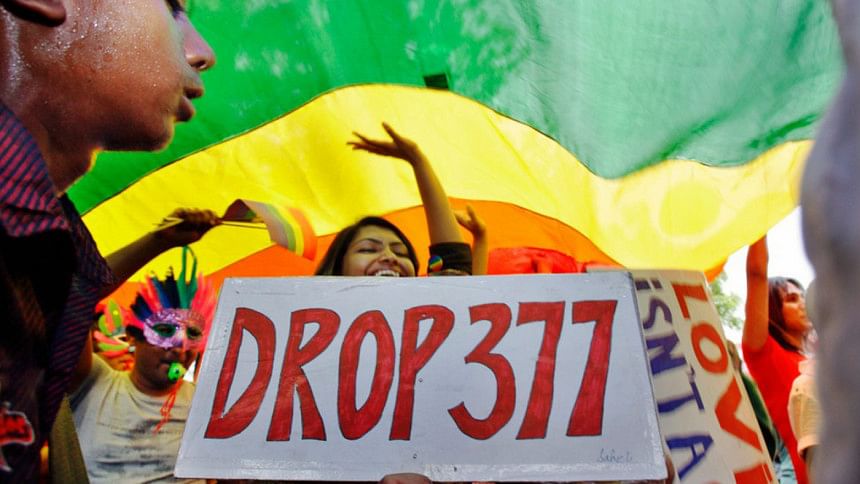Gay sex no more a crime in India

India's top court scrapped a colonial-era ban on gay sex yesterday, in a landmark judgement that sparked celebrations across India and elsewhere in South Asia, where activists hope to push for similar reform.
Gay sex is considered taboo by many in socially conservative India, as well as in neighbouring Bangladesh, Sri Lanka and Pakistan. It was reinstated as a criminal offence in India in 2013, punishable up to 10 years in prison, after four years of decriminalisation.
A five-judge bench in India's Supreme Court was unanimous in overturning the ban. But the ruling could face a legal challenge from groups that say gay sex erodes traditional values.
Read more: TIMELINE: Indian SC decriminalises Section 377
"Any consensual sexual relationship between two consenting adults - homosexuals, heterosexuals or lesbians - cannot be said to be unconstitutional," said the Chief Justice of India, Dipak Misra, as he read out the judgement.
Supporters of the campaign to scrap the ban milled around the court before the verdict and cheered the decision, hugging one another and waving rainbow flags.
Some were overcome with emotion, while others waved banners with slogans such as "Gay and Proud" and "I am who I am". A few distributed sweets in celebration.
"I'm so excited, I have no words," said Debottam Saha, one of the petitioners in the case.
Activists hope the scrapping of the ban will uphold the right to equality but many acknowledged that discrimination would persist.
"We are no longer criminals, (but) it will take time to change things on the ground - 20 to 30 years, maybe," said Saha.

 For all latest news, follow The Daily Star's Google News channel.
For all latest news, follow The Daily Star's Google News channel. 




Comments